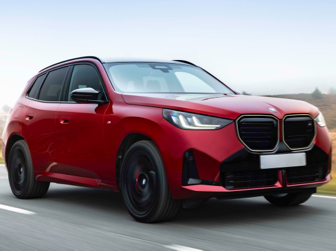In South Africa’s car market, one pressing question often comes to mind: How much would you have to earn to afford the most affordable models from premium brands like Audi, BMW, and Mercedes-Benz?
Can South Africans afford luxury cars?
South Africans have long been known for their passion for cars, with the premium segment remaining an aspirational choice for many. While luxury vehicles offer unparalleled driving experiences, state-of-the-art technology, and superior comfort, they also come with significant financial considerations.
In this article, we’ll break down the costs of owning the most affordable models from three iconic automotive brands—Audi, BMW, and Mercedes-Benz—while focusing on the monthly income needed to afford them comfortably.
To afford these models in South Africa, you need to consider the total cost of ownership, including monthly repayments, insurance, fuel, and maintenance.
The rising cost of entry-level luxury cars in South Africa
Owning a German luxury vehicle in South Africa has become an exclusive privilege, largely limited to the country’s high-income earners. As car prices continue to rise beyond inflation, even the most affordable models from Audi, BMW, and Mercedes-Benz now require buyers to fall within the upper-income brackets.
According to the latest TransUnion Vehicle Pricing Index (VPI), the cost of new vehicles increased significantly in the second quarter of 2024. The index, which monitors price trends for new and used cars from 15 major manufacturers, revealed that new vehicle prices surged by 4.4% year-on-year—outpacing the inflation rate by 1.5%.
While price hikes were felt across all segments, hatchbacks and hybrids were among the hardest hit, with price increases of 7.6% and 4.6%, respectively. Even premium SUVs and electric vehicles, which saw relatively smaller increases of 2.7% and 1.1%, contributed to the broader trend of escalating costs.
Hatchbacks, often considered the gateway into luxury brands, have experienced some of the sharpest price hikes. This trend is particularly evident in the cost of entry-level models such as the Audi A1, BMW 1 Series, and Mercedes-Benz A-Class. Currently, the Audi A1 remains the most budget-friendly option at R523,200, followed by the BMW 1 Series at R713,395 and the Mercedes-Benz A-Class at R826,024.
These rising prices have significantly shifted South Africa’s vehicle affordability landscape, with over 70% of all new cars now costing more than R500,000.
Why are high-end cars becoming more expensive?
Several key factors have contributed to the increasing costs of premium vehicles. The weakening rand, coupled with sluggish economic growth, has made it more expensive to import and sell cars locally. As a result, luxury brands have seen a dramatic decline in sales. Over the past decade, total sales for Audi, BMW, and Mercedes-Benz have plummeted by 63.5%, dropping from 71,889 units in 2014 to just 26,202 units in 2023.
At the same time, Chinese automakers have gained traction in the South African market by offering competitively priced vehicles equipped with advanced technology and solid build quality. This shift has altered market dynamics, giving budget-conscious consumers more alternatives to traditional German luxury brands.
The financial reality of owning a luxury hatchback
Purchasing a premium car is not just about the upfront price—it also involves financing, insurance, fuel, and maintenance costs. Using the Audi A1 as an example, financing the vehicle over 60 months at a 12.5% interest rate (prime rate of 11%) with no deposit results in an estimated monthly repayment of R11,867.
Financial advisors generally recommend that car payments should not exceed 25% of your monthly income. Based on this guideline, an individual would need to earn a net salary of at least R47,500 per month to afford an Audi A1 comfortably.
To put this into perspective, data from the World Inequality Database shows that earning R47,500 per month places you in South Africa’s top 10% of income earners, meaning 90% of the population earns below this threshold. This highlights the increasing exclusivity of luxury car ownership, even at the entry-level.
Long-term price trends: A growing barrier to ownership
Looking at historical price trends, it’s clear that the affordability gap is widening. For instance, a Mercedes-Benz GLA200 that was priced at R400,000 in 2014 now costs more than R926,000, marking a staggering 131.4% increase in just a decade. Such dramatic price hikes make it increasingly difficult for the average South African to consider purchasing a luxury vehicle.
What it takes to afford an entry-level luxury car
Below is a breakdown of the starting prices, estimated monthly instalments, and the recommended monthly salary required to afford the most accessible models from Audi, BMW, and Mercedes-Benz.
Audi A1 Sportback
- Starting price: R523,200
- Estimated monthly instalment: R11,867
- Recommended monthly salary: R47,500
BMW 1 Series
- Starting price: R713,395
- Estimated monthly instalment: R16,146
- Recommended monthly salary: R64,600
Mercedes-Benz A-Class
- Starting price: R826,024
- Estimated monthly instalment: R18,680
- Recommended monthly salary: R75,000
The Bottom Line
With luxury vehicle prices rising faster than inflation and economic conditions remaining challenging, the dream of owning a premium German car is becoming increasingly out of reach for most South Africans. While alternative financing options and second-hand markets provide some relief, the reality is that entry into the luxury segment now requires a high-income threshold. As affordability continues to decline, more buyers may look to alternative brands or more budget-friendly vehicle options in the coming years.
Find out how luxury tax affects new vehicle prices in South Africa
Exploring the BMW X3 M Sport & Its Versatile Lineup
Standout Features of The Mitsubishi Outlander Sport


